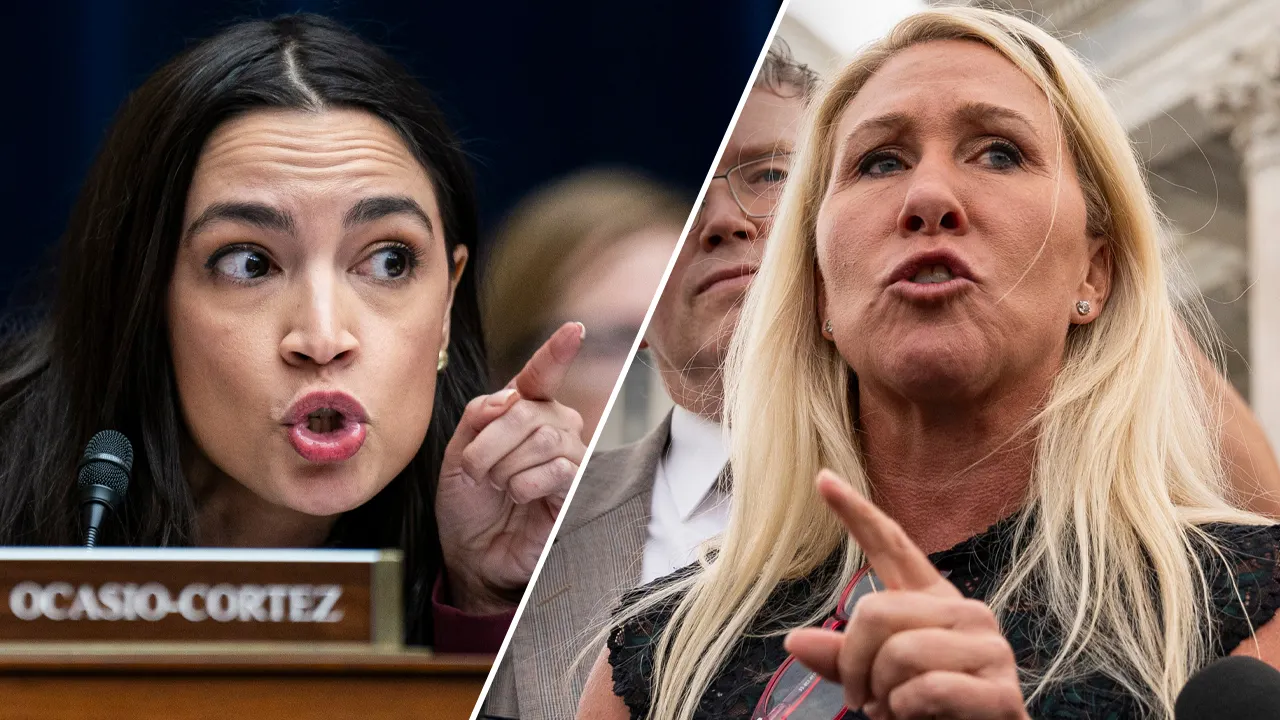Finance
EU ambassadors discuss possible carve-out of finance from due diligence rules

The Spanish Presidency of the EU Council is asking member states to compromise on climate and civil liability provisions in exchange for a carve-out of finance from the proposed EU corporate accountability rules, amid growing calls to include the sector under mandatory due diligence checks.
EU ambassadors will meet on Wednesday (15 November) to renew the Council’s mandate on the corporate sustainability due diligence directive (CSDDD), in view of the next round of negotiations with the European Parliament, set to take place a week later and aimed at finding an agreement on the outstanding aspects of the law.
Negotiations on the law, proposed in 2022 to hold large companies accountable for human rights and environmental violations along their value chains, have been slow due to internal divisions among EU governments and the more ambitious position of the Parliament.
In an effort to unlock negotiations with EU lawmakers, the Spanish presidency has worked to renew the Council’s general approach agreed last year and has put forward a proposal for a carve-out of the financial sector, ahead of Wednesday’s ambassadors’ meeting.
Finance remains out…
In line with a previous document, the latest proposal, seen by Euractiv, maintains the exclusion of financial institutions from the mandatory rules, with a review clause to consider the inclusion of the sector at a later stage.
According to the latest presidency document, the inclusion of the sector would need to follow a detailed impact assessment and would be accompanied by an inter-institutional political declaration.
While a few member states continue to strongly oppose the inclusion of finance, others, such as the Netherlands, continue to be in favour of fully covering the sector.
Several other EU countries would instead be in favour of applying the rules only to banks and insurers, but it is yet unclear whether a compromise could be reached to ensure these sectors are included in the text.
…amid growing concerns
Meanwhile, concerns are growing over the exclusion of the sector.
On Tuesday (14 November), Frank Elderson, a member of the European Central Bank’s executive board, urged the EU institutions to opt for the inclusion of finance under the rules.
“In the absence of clear reasons to the contrary, which I fail to see, financial undertakings should not be treated differently from other companies,” he said, adding that “this can help to ensure that financial institutions – including banks – systematically integrate sustainability matters into their decision making and risk management practices”.
“Not excluding the financial sector from the remit of the CSDDD can further help to create greater certainty around financial institutions’ obligations in this area and around climate- and environment-related litigation risks for the financial sector,” he said in a speech.
The possible carve-out of finance is also worrying civil society organisations.
In a letter sent to EU ambassadors ahead of Wednesday’s meeting, over 60 NGOs urged the Council to “include meaningful due diligence obligations that would apply to key financial sector activities within the CSDDD,” due to the role that banks, insurers, investors and asset managers play in financing practices that might create adverse impacts.
“Financial institutions are crucial to shaping sustainable economic systems, exerting leverage over a broad range of other economic sectors and business activities, and have a key role in upholding the protection of human rights, the environment and climate globally,” the letter said.
Concessions for the Parliament
The carve-out of finance from mandatory due diligence checks, which is not in line with the Parliament’s position agreed in June, would be compensated with concessions on other aspects strongly supported by EU lawmakers, such as access to justice, the scope of the directive, and climate provisions.
On civil liability, the presidency is proposing to introduce elements to strengthen access to justice for victims of adverse impacts of companies. These would include limitation periods to advance claims, participation of trade unions and civil society organisations, disclosure of evidence, injunctive measures and cost of proceedings for claimants.
On the scope of the directive, while keeping the same thresholds agreed in the general approach, the presidency text proposes to agree on some of the Parliament’s demands, such as the inclusion of franchises and a stronger engagement of stakeholders.
Finally, the presidency is proposing concessions on climate change, with obligations for companies to adopt a transition plan and link it to the directors’ remuneration, in line with the position of the European Parliament.
[Edited by Zoran Radosavljevic]
Read more with EURACTIV

Finance
Basel Committee Reports on Digitalisation of Finance

- The Basel Committee has published a report on the implications of the digitalisation of finance for banks and supervision.
- The report considers both the benefits and risks of new technologies and the emergence of new technologically enabled suppliers for the provision of banking services.
- It identifies eight implications for banks and supervisors relating to macro-structural elements, specific digitalisation themes, and capacity building and coordination.
The Basel Committee on Banking Supervision published a report that considers the implications of the ongoing digitalisation of finance on banks and supervision. The report builds on the Sound Practices: implications of fintech developments for banks and bank supervisors published in 2018, and takes stock of recent developments in the digitalisation of finance.
The report reviews the use of key innovative technologies across various aspects of the banking value chain, including application programming interfaces, artificial intelligence and machine learning, distributed ledger technology and cloud computing. It also considers the role of new technologically enabled suppliers (eg big techs, fintechs and third-party service providers) and business models.
While digitalisation can benefit both banks and their customers, it can also create new vulnerabilities and amplify existing risks. These can include greater strategic and reputational risks, a larger scope of factors that could test banks’ operational risk and resilience, and potential system-wide risks due to increased interconnections. Banks are implementing various strategies and practices to mitigate these risks, but effective governance and risk management processes remain fundamental.
Digitalisation raises regulatory and supervisory implications for both banks and supervisors. These include:
- monitoring evolving risks and adopting a responsible approach to innovation;
- safeguarding data and implementing robust risk management processes; and
- securing the necessary resources, staff and capabilities to assess and mitigate risks from new technologies and business models.
The Committee will continue to monitor developments related to the digitalisation of finance. Where necessary, it will consider whether additional standards or guidance are needed to mitigate risks and vulnerabilities.
Source: BIS
Finance
Treasury Department to Use ‘Automation and Innovation’ to Fight Illicit Finance

The Department of the Treasury has outlined the priorities it will pursue this year to step up the fight against illicit finance.
The agency aims to increase transparency, leverage partnerships and support responsible technological innovation, it said in a Thursday (May 16) press release announcing the publication of its “2024 National Strategy for Combating Terrorist and Other Illicit Financing.”
One of the Department’s priorities for the year is closing legal and regulatory gaps in the country’s anti-money laundering and combating the financing of terrorism (AML/CFT) framework, according to the release. It aims to do so by operationalizing the beneficial ownership information registry; finalizing rules covering the residential real estate and investment advisor sectors; and assessing the vulnerability of other sectors.
A second priority is promoting a more effective and risk-focused AML/CFT regulatory and supervisory framework for financial institutions, the release said. The Department will work to do so by providing clear compliance guidance, sharing information and providing resources for supervision and enforcement.
The Department also aims to enhance the operational effectiveness of law enforcement, other U.S. government agencies and international partnerships to combat illicit finance, per the release.
The fourth priority announced in the press release is realizing “the benefits of responsible technological innovation” by developing new payments technology, supporting the use of new mechanisms for compliance, and using automation and innovation to find new ways to fight illicit finance, the release said.
“In this critical moment for our national and economic security, we need to continue to close the pathways that illicit actors seek to exploit for their schemes,” Brian E. Nelson, Under Secretary of the Treasury for terrorism and financial intelligence, said in the release. “We recognize the threat illicit financial activity represents to our national security, economic prosperity, and our democratic values, and are focused on addressing both the challenges of today and emerging concerns.”
These recommendations are meant to address key risks the Department of the Treasury identified in February in its “2024 National Money Laundering, Terrorist Financing, and Proliferation Financing Risk Assessments.”
In another recent move, the Treasury Department said in April that it wants more tools to curb terror financing.
In testimony released ahead of an April 9 appearance before the Senate Banking Committee, Deputy Secretary Wally Adeyemo said terrorist groups and state actors continually “seek new ways to move their resources in light of the actions we are taking to cut them off from accessing the traditional financial system.”
For all PYMNTS B2B coverage, subscribe to the daily B2B Newsletter.
Finance
The Great Financial Crisis kick started the private credit boom, but SVB was its true 'watershed' moment, Sixth Street co-president says

The Global Financial Crisis threw millions of Americans out of their homes and jobs, upending the entire economy. But for the private credit industry, it was actually an awakening of sorts.
Over the past few decades, U.S. banks’ problems have signaled opportunity for the private credit market, and that’s particularly true of the Global Financial Crisis and the collapse of Silicon Valley Bank last March. When banks have issues, U.S. businesses’ desire for capital rarely wanes dramatically, and that leaves room for alternate lenders.
At the Fortune Future of Finance conference on Thursday, Joshua Easterly, co-CIO and co-president of the global investment firm Sixth Street, explained how he was working at Goldman Sachs after the Global Financial Crisis in 2009, running a team that did public and private market transactions in distressed debt and special situations, when he came to the realization that the lending industry had changed forever.
“It was the intended consequence, not the unintended consequence of regulations after the Crisis,” he said of the private credit boom. “Policymakers…wanted to figure out how to diffuse risk away from the taxpayer, but you couldn’t crush the economy by reducing credit, and so private credit history grew.”
Easterly argued that the private credit industry has a “better model” than the banking industry when it comes to lending risk, because it holds more capital for loans on balance sheets. And that made him come to a startling realization in 2009. “Huh? I think I need to go find a new job,” he recalled saying to a colleague. “So [the move to private credit] was a little bit about necessity.”
Carey Lathrop, partner and chief operating officer of credit at Apollo Global Management, echoed Easterly’s comments, noting that when he started in the private credit industry “it was clear how hard it was to get things done that made economic sense” in public markets after the GFC.
The rise of private credit since 2008 has been historic, to say the least. Before the crisis, there was under $400 billion in total assets and committed capital in private credit. In 2023, that number jumped to $2.1 trillion, according to the International Monetary Fund. But it wasn’t just the Crisis that spurred the private credit boom. After the collapse of several regional banks in March 2023, headlined by the tech startup focused Silicon Valley Bank, businesses nationwide once again turned to private credit amid a liquidity crunch.
While SVB struggled after rapidly rising interest rates devalued its long-dated bonds, leading to a run on deposits from its list of influential and well-connected clientele, the manner in which private credit operates can lead to more stability in trying times.
Apollo’s Lathrop explained that banks like SVB “had this mismatch with a lot of long-term assets with assets with short term liabilities” that led to unrealized loan losses on their books as rates soared. But private credit doesn’t have this same issue. “We don’t run the [private credit] business that way,” he noted. “We were much more match funded.”
To his point, unlike banks, which fund a majority of their lending through customer deposits (and often uninsured deposits), private credit funds tend to use money from wealthy investors and institutions to make loans, leaving them less exposed to rising interest rates.
Sixth Street’s Easterly said the SVB drama essentially showed “the robustness” of the private credit] business model, leading a raft of new clientele. “I think it was a watershed moment for the value of the asset class.”
-

 Politics1 week ago
Politics1 week ago'You need to stop': Gov. Noem lashes out during heated interview over book anecdote about killing dog
-

 News1 week ago
News1 week agoMan, 75, confesses to killing wife in hospital because he couldn’t afford her care, court documents say
-

 Politics1 week ago
Politics1 week agoRFK Jr said a worm ate part of his brain and died in his head
-

 World1 week ago
World1 week agoPentagon chief confirms US pause on weapons shipment to Israel
-

 Politics1 week ago
Politics1 week agoHere's what GOP rebels want from Johnson amid threats to oust him from speakership
-

 World1 week ago
World1 week agoPro-Palestine protests: How some universities reached deals with students
-

 World1 week ago
World1 week agoConvicted MEP's expense claims must be published: EU court
-

 Politics1 week ago
Politics1 week agoCalifornia Gov Gavin Newsom roasted over video promoting state's ‘record’ tourism: ‘Smoke and mirrors’















